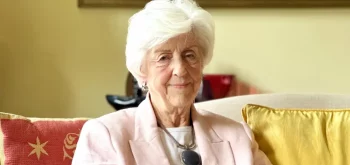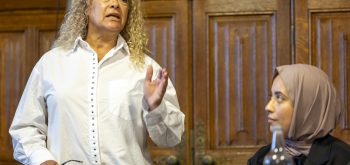A multi-million pound fraud trial has collapsed following discrediting of an unqualified ‘expert’. Andrew Ager had been instructed by the prosecution in a trial of eight men accused of a £7m carbon credit fraud at Southwark Crown Court. It later transpired that Ager not only had no training but he had no academic qualifications at all nor had he read any books on the subject.
The defendants had argued that they believed that there was a viable market for carbon credits and that the value of the credits would rise. The prosecution claimed that Ager was an expert in the carbon credits market and had relied upon him to secure convictions in over 20 trials.
Narita Bahra QC of the barristers chambers 2 Hare Court representing one of the defendants, instructed Dr Marius Cristian Frunza as a defence expert. He had a PhD from Sorbonne University and, according to Bahra, lectured extensively in respect of the carbon credit markets. According to a statement on the chambers’ web site, Ager improperly attempted to dissuade Dr Frunza from giving evidence which resulted in Ager being cross-examined prior to appearing before a jury.
As a result of that cross-examination, according to 2 Hare Court the safety of the convictions in every previous carbon credits prosecution is now in question. ‘Furthermore, it is apparent that there are systemic failures within the investigation and disclosure processes at City of London Police that are likely to impact upon all prosecutions undertaken in the last eight years,’ the chambers said.
Judge Nicholas Loraine-Smith said that Ager should never be permitted to give expert evidence again. ‘Andrew Ager is not an expert of suitable calibre,’ he said. ‘He had little or no understanding of the duties of an expert. He had received no training and attended no courses. He has no academic qualifications. His work has never been peer-reviewed.’
It transpired that Ager had no academic qualifications. When asked if he had any A-Levels, he apparently replied that he had sat three but couldn’t remember if he had passed. According to the statement, ‘despite asserting that he kept abreast of the carbon credits market, he admitted that he had not read any books on the subject even though he accepted that Dr. Frunza’s books were widely available’. ‘He did, however, tell the court that he had once seen a documentary about credit credits,’ it continued.
Ager admitted that a number of the assertions he had made to Dr Frunza during a joint experts meeting were ‘either wholly untrue or substantially inaccurate’.
The court heard that Ager had made a telephone call to Frunza to out him off giving evidence. According to a BBC report, Ager claimed that several people had died as a result of losing their money – the court heard there was no evidence of that – and that the defendants had spent money on Ferraris, Lamborghinis and Aston Martins but again there was no such report. Judge Loraine-Smith said Ager had attempted to convince Dr Frunza that, if he gave evidence, he risked a ‘horrendous environment’ in which he would find out ‘what you are defending is someone who has taken someone’s life savings’.
‘Mr Ager was keen that his evidence should not be challenged and he felt threatened by the prospect of a far more impressive expert appearing in an area of expertise in which he hoped to continue making a living.’
Judge Nicholas Loraine-Smith
As a result of the cross examination Ager ‘admitted that he had kept no record whatsoever of the material that he had been provided with by the police and no notes of his workings… that he had lost some of the sensitive material he had been provided with by the police as he kept it in a cupboard under the stairs and the material had been damaged by a “leak”. He did, however, assure the court that he now had better storage facilities as he kept confidential material in a “locked box on his balcony”.’
Prior to Ager giving evidence, the defence had made targeted disclosure requests which revealed that the officers in the case had taken no notes of their meetings with him and no record of the material that they had provided to him. At the end of the examination, the prosecution confirmed that they abandoned Ager and that he had been removed from the National Crime Agency’s list of approved experts.







